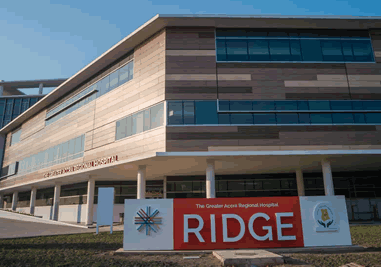
More than 94,000 people die of non communicable diseases (NCDs) in Ghana every year, a study by the Ghana Non-Communicable Disease Alliance (GhNCDA) has revealed.
The deaths, according to the non-profit organisation, amounts to 43 per cent of all deaths in the country annually.
Speaking at the launch of the Ghana Advocacy Agenda of People Living with NCDs in Accra yesterday, Mr Labram Musah, National Coordinator of GhNDCA said people suffering from NCDs, mainly cancer, cardiovascular disease, chronic respiratory diseases and diabetes often become disabled due to their condition and were discriminated against, mostly in terms of education and employment opportunities.
He lamented that treatment for such ailments were very expensive and called on government to include the treatment of NCDs on the National Health Insurance Scheme (NHIS), adding that the high cost of care drove the poor further into poverty and other vulnerable situations.
Mr Musah said "We are also calling for the availability of comprehensive services for early detection, diagnosis, and affordable treatment, psychological and rehabilitative care for people suffering from chronic diseases."
Ghana cannot afford to exclude NCDs from its national and development agendas any longer, nor can it ignore the role that people with NCDs must play in policy making, if we are to turn back an epidemic that is causing catastrophe."
He advised members of the public to promote healthy diets, physical activity, alcohol and tobacco control as well as combating air pollution to reduce premature deaths and any form of disability from NCDs.
Launching the advocacy agenda, Deputy Minister of Health, Mr Alexander Kodwo Abban said Ghana was responding to the challenges and making progress on strengthening policy response to NCDs.
He cited the legislation on tobacco control, accompanied by the National Alcohol Policy, National Cancer Strategy and a National Strategy on Prevention and Control of NCDs.
The Minister explained that efforts were also being made to ensure that the treatment of some NCDs were captured under the NHIS as a way to alleviate the burden on people living with chronic diseases with regards to economic cost and access to healthcare.
These, he said were in line with his outfit's initiative to ensure universal health coverage for all.
According to Mr Abban, NCD prevention and control required leadership and coordinated multi-stakeholder engagement at the governmental levels and a wide range of actors to implement measures to fight the menace.
He commended GhNCDA for the initiative and urged them to continue to compliment government's efforts "in this global fight and to empower communities and people living with NCDs to demand their constitutional rights to health."
The World Health Organisation (WHO) country representative for Ghana, Dr Owen Kaluwa in a speech read on his behalf indicated that, NCDs accounted for the 70 per cent of all deaths globally each year, adding that about 15 million of those deaths were people between the ages of 30 and 69.
He therefore reiterated the need for more efforts to be directed towards the fight against the cancer to promote healthy living and protect lives.
Read Full Story






















Facebook
Twitter
Pinterest
Instagram
Google+
YouTube
LinkedIn
RSS